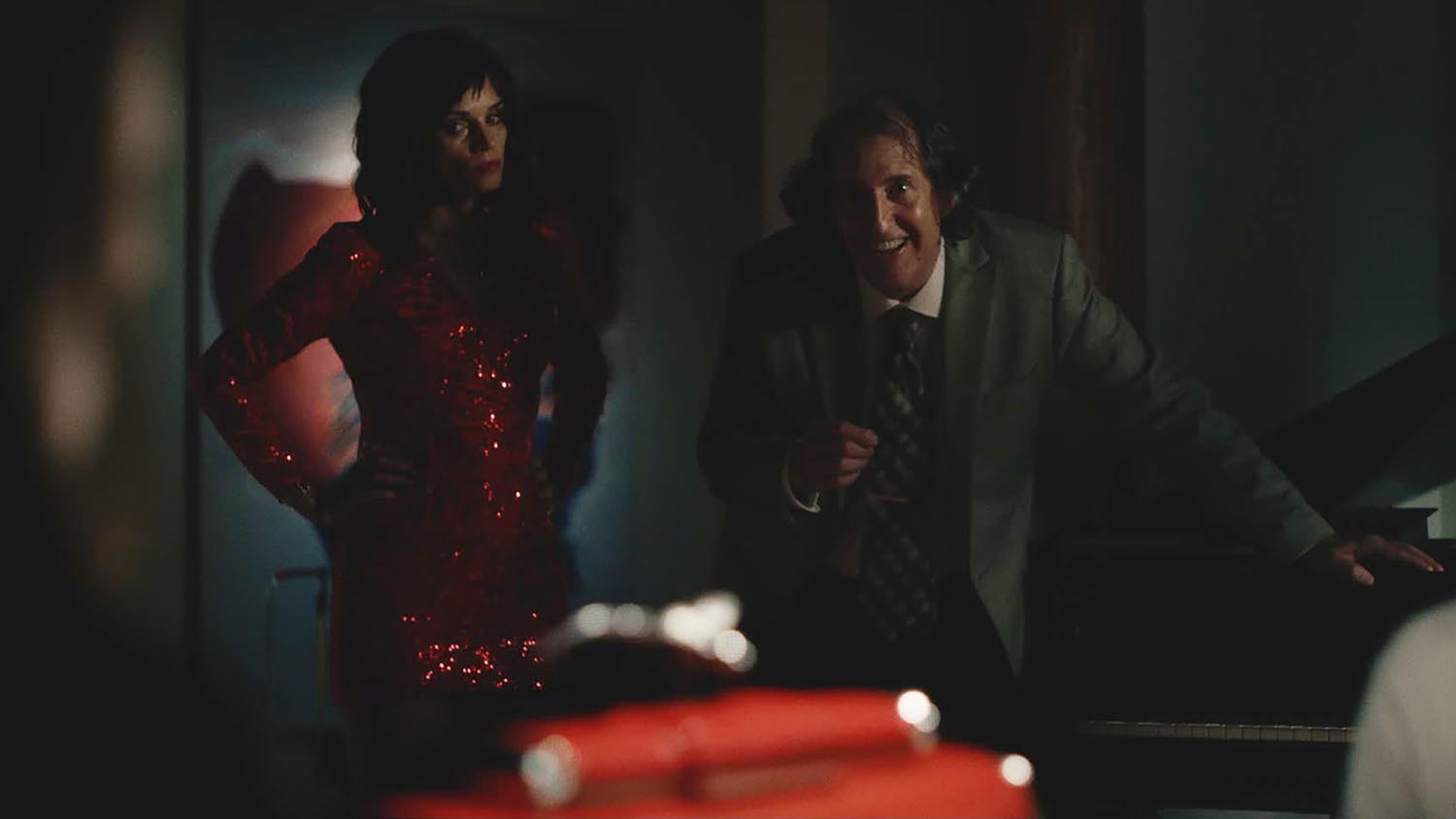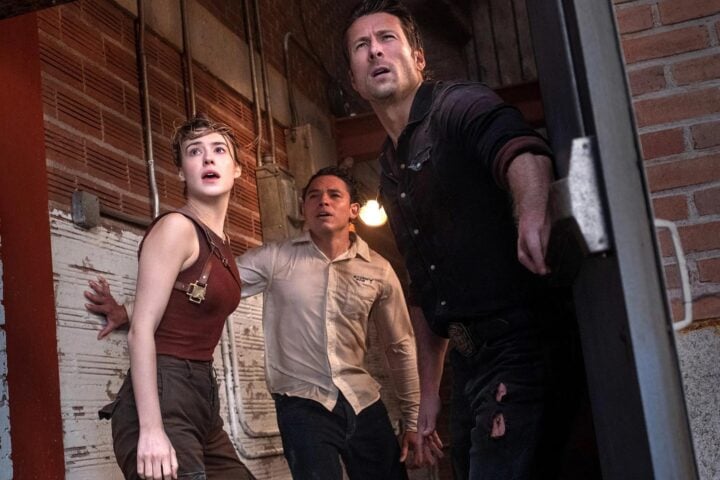Chris Skotchdopole’s Crumb Catcher is a tantalizing mix of the absurd and the mundane, with each of those two poles encapsulated by John (John Speredakos), an aging waiter who describes himself as an artist and entrepreneur. With his earnest grin and thinning mane, he registers less as a threat than an annoyance when he accosts a young, just-married couple, Shane (Rigo Garay) and Leah (Ella Rae Peck), in their car, making the sort of insistent small talk that you would seem to need a crowbar to extricate yourself from.
You’ve probably seen this sort of man before. If so, you maybe tried to avoid him. And in Skotchdopole’s feature debut, he shows up in the middle of the night to the lavish home where Shane and Leah spend their honeymoon, subjecting them to the mother of all horrors: a pitch.
The film takes its time at first, following Shane and Leah in the charged aftermath of the wedding. They work together, and Leah is also the publisher of Shane’s forthcoming memoir, so it’s easy to see how they’re prone to getting on each other’s nerves. And in touring the various pain points of their relationship, Crumb Catcher weaves the psychological web that will rule the couple’s actions once John shows up in the night alongside his own wife, Rose (Lorraine Farris).
Unbeknownst to Leah, John and Rose initially intend to blackmail Shane, only for John to switch gears when he sees an opportunity to get funding for his invention: the crumb catcher, which is more or less a fancy dustpan for restaurant customers to clean up after themselves.
John’s bizarre pitch, which is captured in swooping, intentionally disorienting camera maneuvers, marks the film’s high point, a minefield of ulterior motives and tension augmented by the characters’ glances and tones of voice. In hopes of escaping blackmail, Shane submits to the whims of the strangers, feigning interest for John’s benefit while also trying to convince Leah that he hasn’t lost his mind. Rose acts as John’s reluctant co-presenter while threatening to torpedo the whole charade, unconvinced that blackmail isn’t the better option. Both couples seem like funhouse-mirror images for the way they’re out of sync with one another.
Always you feel the undercurrent of danger and desperation in this scenario. Beyond the unsettling qualities of the nighttime visit from the two strangers, Shane and Leah eventually notice the pistol under John’s jacket. But Crumb Catcher is at its weakest when it enters more conventional thriller territory—that is, when the characters start pointing guns at each other, hitting their heads, and get into a car chase. These moments are hardly incompatible with the rest of Skotchdopole’s film, as they’re still rooted in the characters’ resentments and insecurities, but they lack the mischievous, layered comedy of what precedes them.
Crumb Catcher is most persuasive before the violence escalates, namely when it’s focused on John, with his glossy, printed booklets, earnestly pitching his fabulously mundane invention. The crumb catcher is blatantly useless, and it fascinatingly reveals John’s deep dissatisfaction with his job. Indeed, as preposterous as the man’s proposal may be, there’s a sad logic to him coming up with such a thing in the first place. It’s fitting, then, that the film, while rough around the edges, is such a compelling pitch of what Skotchdopole is capable of.
Since 2001, we've brought you uncompromising, candid takes on the world of film, music, television, video games, theater, and more. Independently owned and operated publications like Slant have been hit hard in recent years, but we’re committed to keeping our content free and accessible—meaning no paywalls or fees.
If you like what we do, please consider subscribing to our Patreon or making a donation.


